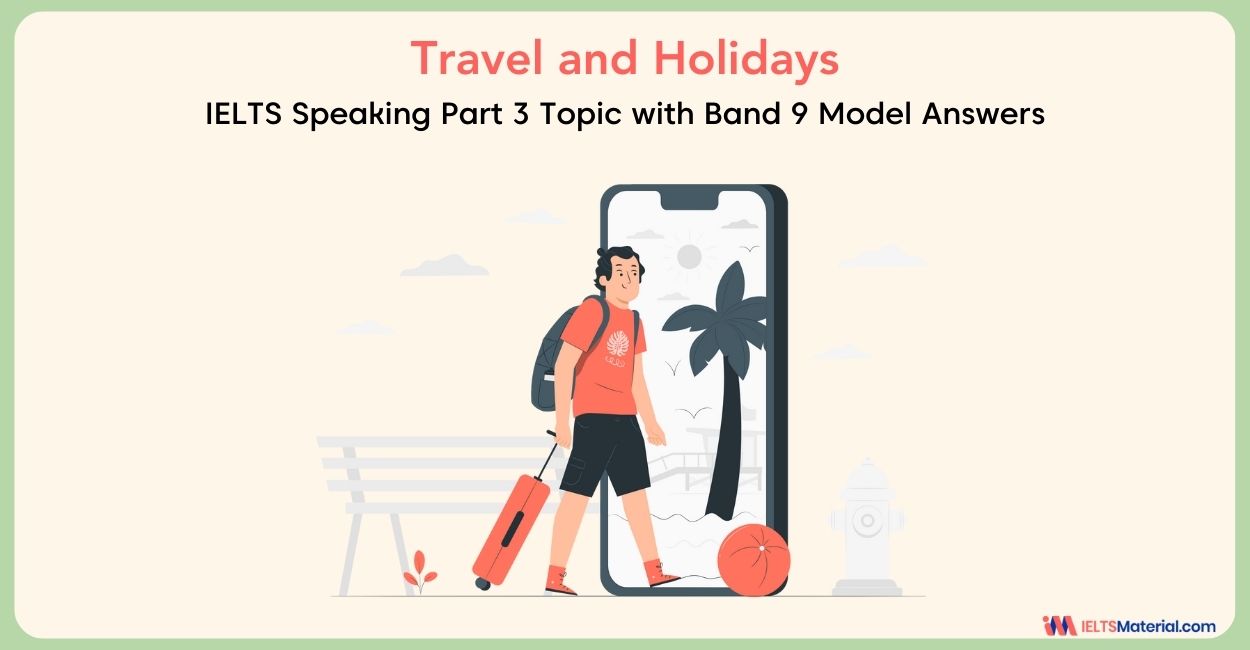Foreign Language: IELTS Speaking Part 3 Sample Answer
7 min read
Updated On
-
Copy link
Try out the ‘Foreign Language: IELTS Speaking Part 3’ questions and find out about how to achieve your desired band score!
Table of Contents

Limited-Time Offer : Access a FREE 10-Day IELTS Study Plan!
Topics like Foreign Language asked in the IELTS Speaking Part 3 simulate real-life situations that you would experience in the receptive country’s professional and everyday environment. So, prepare them and deliver them out loud to perfect your speaking skills.
Let’s practice it with some easy questions about a popular IELTS Speaking topic: Foreign Language!
Speaking Part 3
1 Which language in your opinion is the most important in the world nowadays, and why?
I’m actually studying two languages at the moment and it’s quite challenging and intriguing at the same time. Since English is not my mother tongue, it’s the very first foreign language I’ve attempted to learn because of its widespread use and numerous benefits that come along. It’s the most spoken language for non-native speakers around the globe and is one of the most critical criteria companies look for when recruiting an employee, or at least that’s a reality in my country. Besides, acquiring a new language proves to have beneficial effects on your brain and personal development. You will be able to travel around with ease, gaining more priceless experience and building up your confidence when communicating with people.
2 Why is it so important to know another language?
That thought has crossed my mind once or twice but I’ve never visualized myself as a full-time teacher. A part-time job, yes. A professional one, not likely. Being a legitimate teacher in my country requires certain academic degrees and credentials to be able to convey knowledge and improvise in class. In my case, I’ve never attended any special training in teaching or have any pedagogical skills; therefore, I don’t have much confidence in handling difficult situations in class. Besides, you have to reach a high level of language proficiency to make sure that whatever you say is trustworthy and credible.
3 Is travel the only reason why learning another language is beneficial?
Each person has their own ways of obtaining new knowledge and their learning acquisition process functions differently as well. There are many reasons contributing to how fast a person can master a new skill such as the neural activity itself or some other objective factors. Research has shown that neural activity in quicker learners is somewhat different from slower ones, which leads to a difference in their learning speed. On the other hand, factors such as motivation, concentration, method and time also have profound impacts on efficiency. Unless one is highly motivated, focused and has the right tools and guidance, he won’t be able to learn anything fast enough.
4 What is the hardest part of learning a new language?
Of course, it is. Whether it’s grammar, vocabulary or pronunciation, it’s essential to pay equal attention to each of them to be able to master the language. However, at the very first stage of getting to know the language, grammar may not be a central focus since familiarizing yourself with the sound and pronunciation proves to be more effective. Once you get more comfortable and would like to communicate at a higher level, correct grammar will be critical since, without it, you can only utter broken sentences, which may or may not understandable but surely unprofessional.
5 Do you think learning another language is more important for young people or old people?
The world has become more interconnected than ever and cross-border communication is not only a demand but also a determining factor in strengthening bonds among countries and people, economically and politically. Therefore, understanding each other’s, verbally or non-verbally, is crucial. Furthermore, languages are valuable assets when it comes to travelling and experiencing. If you are bilingual or multilingual, you can roam around other parts of the world with great ease and your whole journey will be transformed miraculously.
6 Who finds learning a new language easier, children or adults?
I think it’s obviously in their best interest to pick up a few basic words or phrases in a local language. Firstly, it is an interesting experience to try to communicate with the locals in their mother tongue. You may not get the words right, but that’s where the fun lies. Hence, people will find you more approachable and charismatic because of your efforts and sense of humour. Besides, since language is an integral part of any culture, you can develop a cultural sensitivity while studying their very means of communication.
7 What kind of quality should a language teacher have?
Not only a language teacher in particular but educators in other areas should have certain skills and knowledge to successfully inspire and instruct their students. First and foremost, of course, deep knowledge and great education matter. It’s often said that “a teacher is only as good as his knowledge is”. People may not need academic degrees or certificates in other jobs or industries, but in education and training, they are solid proof to verify your professional qualifications. Furthermore, communication skill also plays an essential role. If one is an articulate and persuasive speaker, he will be able to convey his lectures with better results. Last but not least, a good sense of humour may be of great help to grab students’ attention and interest.
8 Why do people want to learn a foreign language?
Studying a foreign language is not only a hobby but also a trend in modern society due to some undeniable advantages. Speaking more than one language can open up a world of employment opportunities for job seekers, especially if that language is widely used in a business context. You will be able to work for not only local but global corporates as well with decent salaries. In addition, being bilingual or multilingual will help extend your social network worldwide. You can establish deep connections and cross-cultural friendships with foreign co-workers or local people while travelling. Finally, your brain will benefit greatly from the learning activity itself. Research has shown that studying another language will alter your grey matter which helps to increase your brainpower.
Vocabulary
- challenging: difficult in an interesting way that tests your ability
Eg: She is always up for some challenging sports - intriguing: very interesting because of being unusual or not having an obvious answer
Eg: She gives intriguing answers - widespread: existing or happening over a large area or among many people
Eg: The pandemic is widespread - criteria: a standard or principle by which something is judged, or with the help of which a decision is made
Eg: “These are the criteria for assessment.” - acquire: to gain something by your own efforts, ability or behaviour
Eg: You to acquire some knowledge on IoT - cross one’s mind: (of a thought) occur to one, especially transiently
Eg: When I was doing this project, an idea crossed my mind. - visualize: to form a picture of somebody/something in your mind
Eg: You can visualize the story while you read - legitimate: allowed and acceptable according to the law
Eg: The work she is doing is legitimate - credentials: the qualities, training or experience that make you suitable to do something
Eg: She will ask for your credentials before promoting you - convey: to make ideas, feelings, etc. known to somebody
Eg: Convey the message to your seniors about the game - improvise: to make or do something using whatever is available, usually because you do not have what you really need</span
Eg: ‘Improvise what your sister wrote and give me’ - pedagogical: concerning teaching methods
Eg: She developed pedagogical skills - proficiency: the ability to do something well because of training and practice
Eg: You need to have proficiency in anything you choose - credible: that can be believed or trusted
Eg: Your answer is credible - obtain: to get something, especially by making an effort
Eg: She obtained it from the market - contribute: to increase, improve or add to something
Eg: She contributed some money for the flood victims - familiarize: to learn about something or teach somebody about something, so that you/they start to understand it
Eg: Familiarise yourself with the product - interconnected: having all constituent parts linked or connected
Eg: Everything is interconnected - cross-border: involving activity across a border between two countries
Eg: Computers have enabled cross-border transactions. - asset: a person or thing that is valuable or useful to somebody/something
Eg: Singing is her asset - bilingual: able to speak two languages equally well
Eg: Ram is bilingual - multilingual: speaking or using several different languages
Eg: She has a multilingual friend - roam: to walk or travel around an area without any definite aim or direction
Eg: Don’t roam around during the pandemic - in one’s best interest: for one’s benefit or advantage
Eg: Parents are scolding you because they care for you - approachable: friendly and easy to talk to; easy to understand
Eg: All the teachers in the school are approachable - charismatic: exercising a compelling charm that inspires devotion in others
Eg: Sita is a charismatic person - integral: is an essential part of something
Eg: This screw is an integral part of the product. - cultural sensitivity: being aware that cultural differences and similarities between people exist without assigning them a value – positive or negative, better or worse, right or wrong
Eg: My grandmother is culturally sensitive - instruct: to tell somebody to do something, especially in a formal or official way
Eg: I instructed her to work on the project - verify: to check that something is true or accurate
Eg: She will verify the news - articulate: (of a person) good at expressing ideas or feelings clearly in words
Eg: She is very articulate - grab one’s attention: to cause one to become interested in something
Eg: She grabbed the professor’s attention by raising her hand
To conclude, you can also get our IELTS speaking ebook titled “IELTS Speaking Actual Tests & Suggested Answers (Ebook)” which covers all the latest IELTS Speaking Actual Tests in 2024 with Band 9.0 Model Answers to boost yourIELTS band score as you practice topics like the ‘Foreign Language.’
Also check:

Start Preparing for IELTS: Get Your 10-Day Study Plan Today!
Explore other Speaking Part 3 Actual Test Questions

Nehasri Ravishenbagam
Recent Articles



Kasturika Samanta

Prity Mallick




Post your Comments